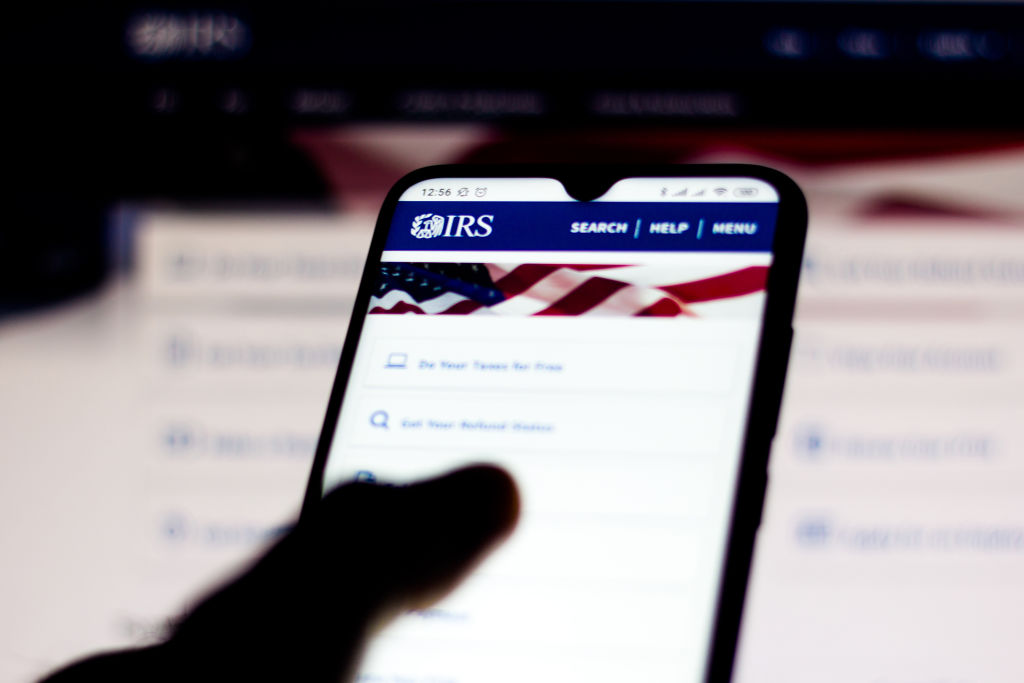
For scammers, confusion and desperation can make even the most careful people vulnerable to their schemes. And when it comes to the government’s stimulus payments, both are in ample supply.
As part of an effort to keep the economy afloat during the COVID-19 pandemic, the Internal Revenue Service (IRS) is sending payments of up to $1,200 or more to millions of Americans. But confusion around when and how those payments will arrive, in combination with people’s desperation for financial relief, have made the process a playground for scammers of all kinds. The Federal Trade Commission (FTC) has received more than 18,000 complaints of fraudulent activity related to stimulus payments, the agency said on April 15.
Some scammers may be after the payments themselves, while others are using the opportunity to get valuable personal information, like bank account numbers, from unsuspecting targets.
Keeping yourself from getting scammed out of your stimulus payment or personal information is a pretty straightforward affair. Here’s what to look out for.
Beware stimulus-related emails, calls, and texts
That the government would call you up to let you know your stimulus payment is on the way or to ask for some personal information before dropping your check in the mail sounds pretty convenient.
But the IRS is far too busy even to answer questions about the stimulus payments. It simply doesn’t have the resources to be calling or texting anyone right now. So if someone emails, calls or texts you for your personal information — maybe they’re claiming they can facilitate a faster payment, or need more information to send your money — it’s likely someone trying to scam you.
“The IRS doesn’t initiate contact with taxpayers by email, text messages or social media channels to request personal or financial information,” reads the agency’s page related to phishing and other scams. “This includes requests for PIN numbers, passwords or similar access information for credit cards, banks or other financial accounts.”
You can visit the IRS’ Get My Payment page to check the status of your payment and more.
Check the language
The stimulus payments aren’t actually called “stimulus checks,” despite the popularity of the term. According to the IRS, its official term is “economic impact payment.” So if you get an email, call or text using the unofficial language of “stimulus check,” it’s a tip-off that the message isn’t legit.
Watch for your receipt
Whether you receive your stimulus payment via direct deposit or as a paper check through snail mail, the IRS will also send you a letter in the mail 15 days later letting you know that the payment was sent. The agency won’t be hounding you or anyone else over the phone, email or text about it.
That letter is useful because it serves as official verification that your stimulus payment was sent out. If you get one after receiving your payment, then you’ve got nothing to worry about. But if you get one before your payment arrives, it’s a sign that something may be amiss.
“This is another way people can be alerted to a potential scam,” says Kimberly Palmer, a personal finance expert at NerdWallet. “If you get the letter stating the IRS did send your payment, but you actually didn’t get the payment — maybe it’s not in your bank account, or you didn’t get the paper check, then that’s … a huge red flag.”
Receiving the letter before your payment could be a signal that the IRS sent the check to the wrong mailing address or bank account, so be sure to double-check the information the agency has on file for you.
Don’t like what you see? Tell the FTC
If you get a suspicious call, email, or text about your stimulus payment, first of all, don’t open it. Secondly, it’s a good idea to let the FTC know about it, so it can track and warn others of scams. The agency has a complaint page where you can easily report suspicious activity to help others from getting duped.
More Must-Reads From TIME
- The 100 Most Influential People of 2024
- Coco Gauff Is Playing for Herself Now
- Scenes From Pro-Palestinian Encampments Across U.S. Universities
- 6 Compliments That Land Every Time
- If You're Dating Right Now , You're Brave: Column
- The AI That Could Heal a Divided Internet
- Fallout Is a Brilliant Model for the Future of Video Game Adaptations
- Want Weekly Recs on What to Watch, Read, and More? Sign Up for Worth Your Time
Write to Patrick Lucas Austin at patrick.austin@time.com